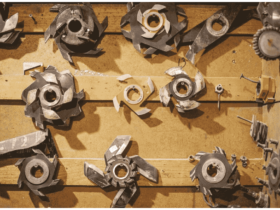Commissioning and Qualification (CQ) is an essential process in the pharmaceutical and biotech industries. It ensures that systems, equipment, and facilities used in the manufacturing of drugs and biologics meet the required standards for quality, safety, and efficacy. In this article, we will discuss the basics of CQ, its importance in the pharmaceutical and biotech industries, and the differences between CQ in pharma and biotech. We will also explore the concept of Commissioning Qualification and Validation (CQV) and its significance in the pharmaceutical and biotech industries.
What is Commissioning and Qualification?
Commissioning and Qualification is a systematic process that verifies and documents that a facility, system, or equipment is designed, installed, tested, and operated according to its intended use and to meet the regulatory requirements. The Commissioning process involves testing and verifying the equipment and systems before they are used in the manufacturing process. The Qualification process ensures that the equipment and systems are installed, calibrated, and maintained to meet the regulatory requirements throughout their lifecycle.
Importance of CQ in Pharma and Biotech
CQ is critical in the pharmaceutical and biotech industries to ensure that the equipment and systems used in the manufacturing process meet the quality and regulatory requirements. The manufacturing process involves complex systems and equipment that must be calibrated and maintained to ensure that they function correctly and produce high-quality products. Failure to comply with regulatory requirements can lead to product recalls, loss of reputation, and legal liabilities.

Differences Between CQ in Pharma and Biotech
While CQ is fundamental in both pharma and biotech, there are some differences in the approach and requirements in each industry. Pharma manufacturing processes are typically more established and require a more stringent approach to CQ due to the highly regulated nature of the industry. Biotech manufacturing processes involve more complex systems, and the CQ process must be flexible to accommodate changes in the processes and equipment.
Commissioning Qualification and Validation (CQV)
Commissioning Qualification and Validation (CQV) is a holistic approach that combines the Commissioning and Qualification processes with the Validation process. The Validation process involves documenting and verifying that the equipment, systems, and processes meet the regulatory requirements and produce high-quality products consistently. The CQV process ensures that the equipment and systems are designed, installed, tested, and operated according to their intended use, meet the regulatory requirements, and produce high-quality products consistently.
CQV in Pharma and Biotech
The CQV process is critical in both pharma and biotech to ensure that the equipment and systems used in the manufacturing process produce high-quality products consistently and meet the regulatory requirements. In pharma, the CQV process is more focused on the equipment and systems that produce the drug product, while in biotech, the CQV process is more focused on the equipment and systems used in the upstream and downstream processes.
Conclusion
Commissioning and Qualification is a critical process in the pharmaceutical and biotech industries to ensure that the equipment and systems used in the manufacturing process meet the quality and regulatory requirements. The CQV process combines the Commissioning, Qualification, and Validation processes to ensure that the equipment and systems are designed, installed, tested, and operated according to their intended use, meet the regulatory requirements, and produce high-quality products consistently. Understanding the importance of CQV in the pharma and biotech industries is essential to ensure that the products produced are safe, effective, and of high quality.








